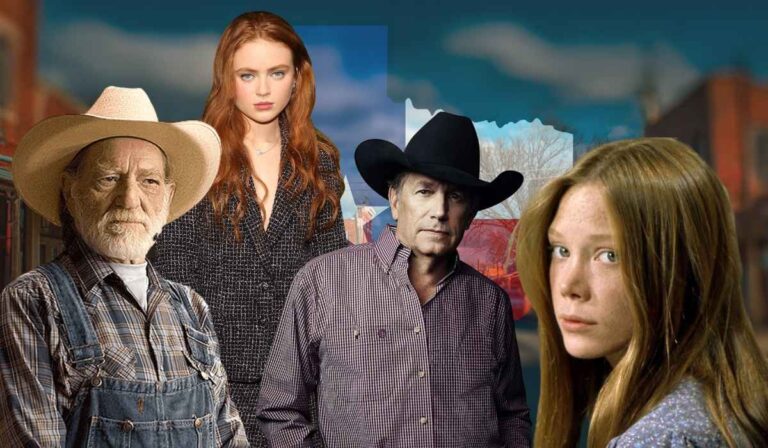Texas often gets credit for producing big talent in big cities like Austin or Houston.
But many famous faces actually took their first steps in towns that barely register on the map.
You may know their names, but did you know they hailed from places with fewer than 10,000 people?
Prepare to be surprised by just how many stars got their start in small-town Texas.
1. Willie Nelson – Abbott (Population ~350)
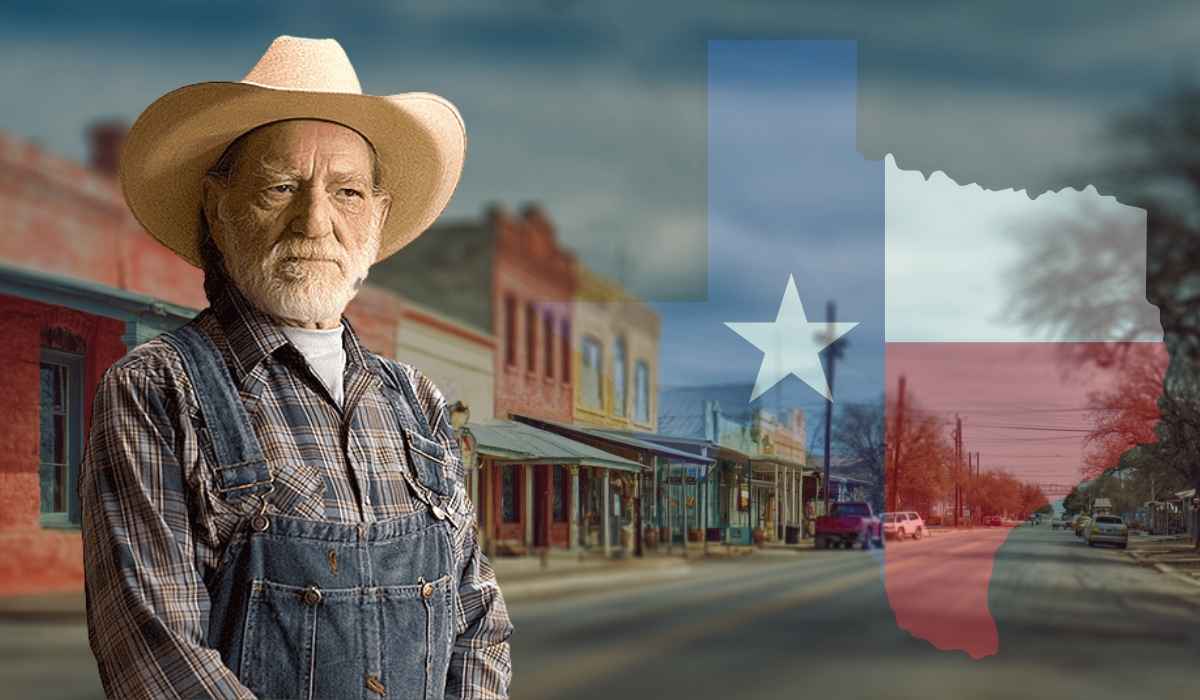
Few names resonate through American music history like Willie Nelson. Born in 1933 during the Great Depression, he entered a world shaped by:
- Scarcity
- Family strength
- Hard labor
Abbott, a town of fewer than 400 people, didn’t have bright lights or music industry scouts. It had front porches, church gatherings, and long days under the Texas sun. That’s where Nelson learned what matters.
Raised by his grandparents after his parents separated, he wrote his first song at age seven and joined his first band at ten.
His early years included picking cotton, selling vacuum cleaners, and working odd jobs, each one helping him understand struggle. That working-class grit would seep into his lyrics decades later.
Music wasn’t a hobby. It was survival. Old hymns, polkas, and folk tunes formed the backdrop of his early days. He listened, absorbed, and transformed those sounds into something his own.
- Gospel music in Abbott’s church
- Rural radio stations playing country, blues, and swing
- Childhood exposure to hard labor and modest living
Playing in small bands around Central Texas, he began shaping a voice that would later break away from Nashville’s polish.
Activism later became part of his identity. Farm Aid, environmental causes, and marijuana legalization all grew out of his empathy for underdogs, a trait rooted in that tiny Texas town where neighbors looked after each other.
2. Sissy Spacek – Quitman (Population 2,300)
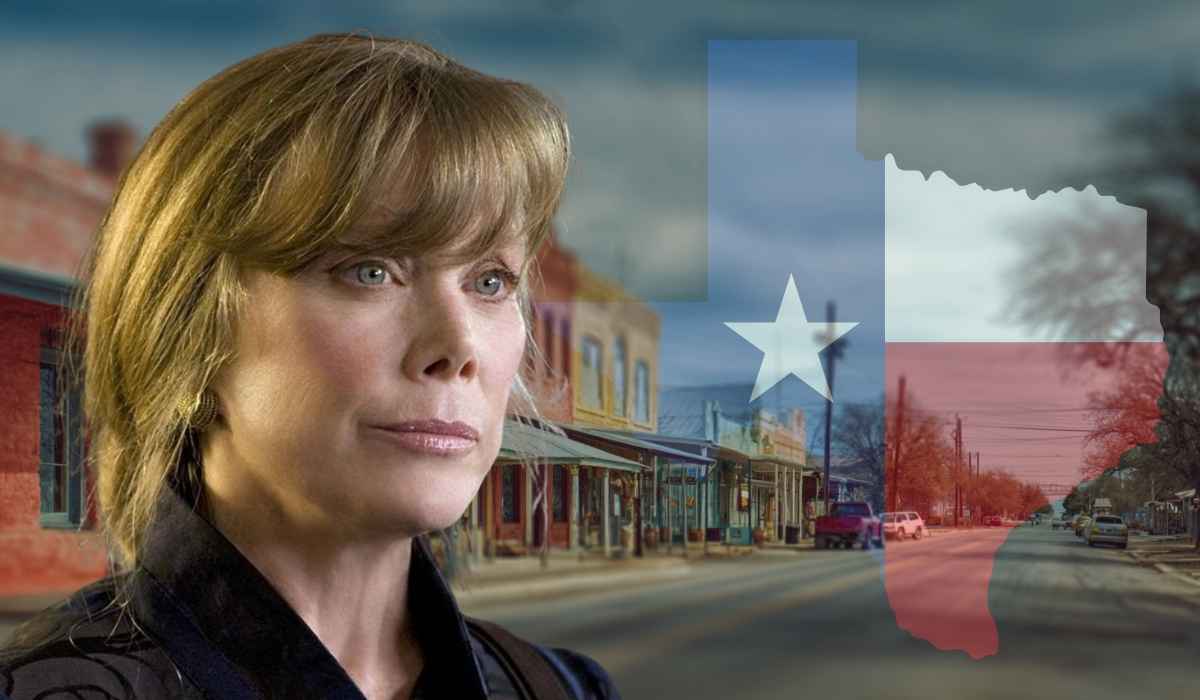
Long before red carpets and Oscar nominations, Sissy Spacek roamed the streets of Quitman, a small Texas town where everybody knew your name.
Growing up there gave her a closeness to everyday life that later bled into every role she played.
There were no glitzy acting schools or elite drama coaches. There were backyards, family dinners, and honest conversations that taught her more about emotion than any theater could.
Early life in Quitman wasn’t flashy. Days moved slowly, filled with real people living real lives. Those interactions shaped Spacek’s later ability to portray working-class women with striking realism.
- Natural speech patterns with no affectation
- Deep empathy and emotional restraint
- Realistic portrayals of Southern women
Friends and neighbors in Quitman often described her as observant and thoughtful, not someone chasing fame. That temperament stayed with her as she broke into Hollywood.
She never relied on theatrics. She brought subtlety, honesty, and an unpolished edge that made her stand out.
3. Miranda Lambert – Lindale (Population ~6,000)
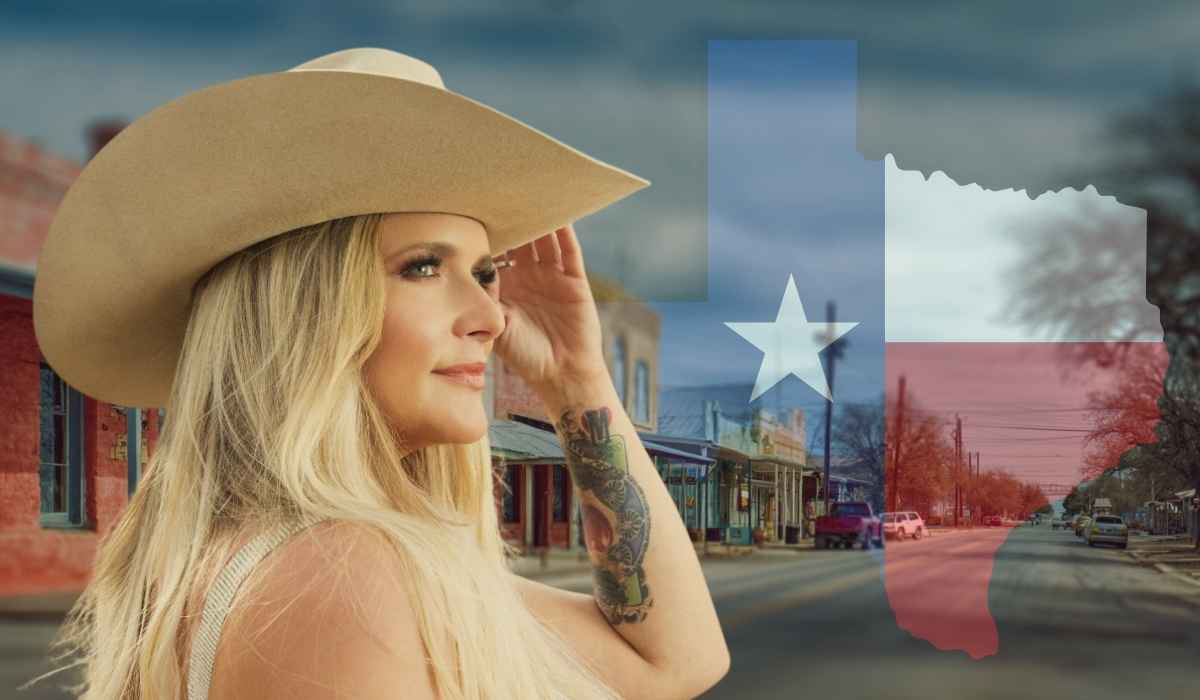
Miranda Lambert’s climb to the top of country music didn’t begin on a big stage.
It started in Lindale, where she sang at local festivals, community fairs, and in the family-owned Pink Pistol boutique.
Her father, a former undercover cop and songwriter, introduced her to the world of country ballads and personal storytelling. Lambert took that early exposure and added her own raw energy. Local gigs and regional competitions gave her thick skin and fearless confidence.
- Performed in talent shows by age 10
- The family music venue provided early performance experience
- Grew up hearing and writing about real-life struggles
Lindale shaped her edge, the rebellious spark in her voice, the strength in her lyrics, the honesty in her anger. Her songs about heartbreak, revenge, and resilience don’t feel fictional. They feel lived. That’s because they come from a place where people don’t sugarcoat reality.
Fame didn’t erase Lindale’s influence. It amplified it.
4. Dan Rather – Wharton (Population ~8,500)
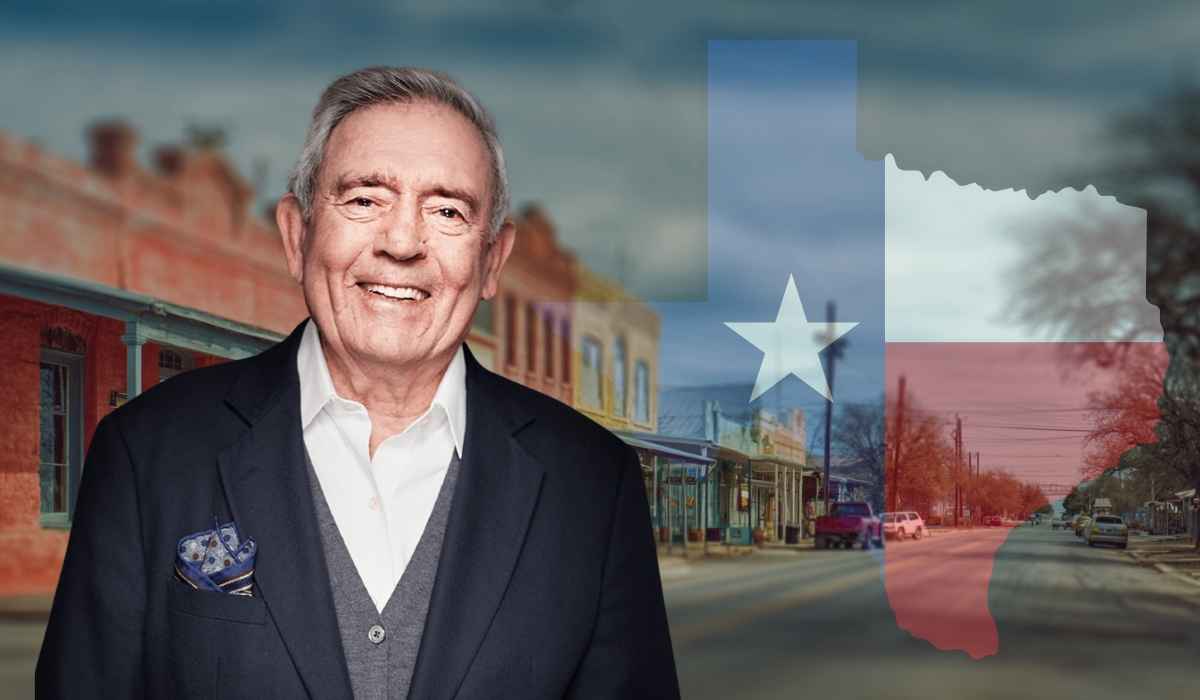
Dan Rather didn’t become a news legend overnight. His curiosity first sharpened in Wharton, a quiet South Texas town where listening was a way of life.
Wharton had its own stories, local elections, school events, neighborhood disputes. Rather paid attention to them all.
His early years in Wharton included delivering newspapers and working odd jobs, but his real education came from watching how adults handled truth. It wasn’t about who shouted loudest. It was about who showed up, listened, and asked the right questions.
- Emphasis on storytelling with humility
- Respect for facts over sensationalism
- Strong connection to ordinary people’s concerns
Rather carried those lessons into his national reporting. Vietnam, Watergate, the Challenger disaster — each covered with the same care as a local council meeting.
His cadence and delivery always reflected the rhythms of small-town Texas speech: firm, respectful, and no-nonsense.
Wharton gave him more than a start. It gave him a compass.
5. George Strait – Poteet (Population ~3,000)
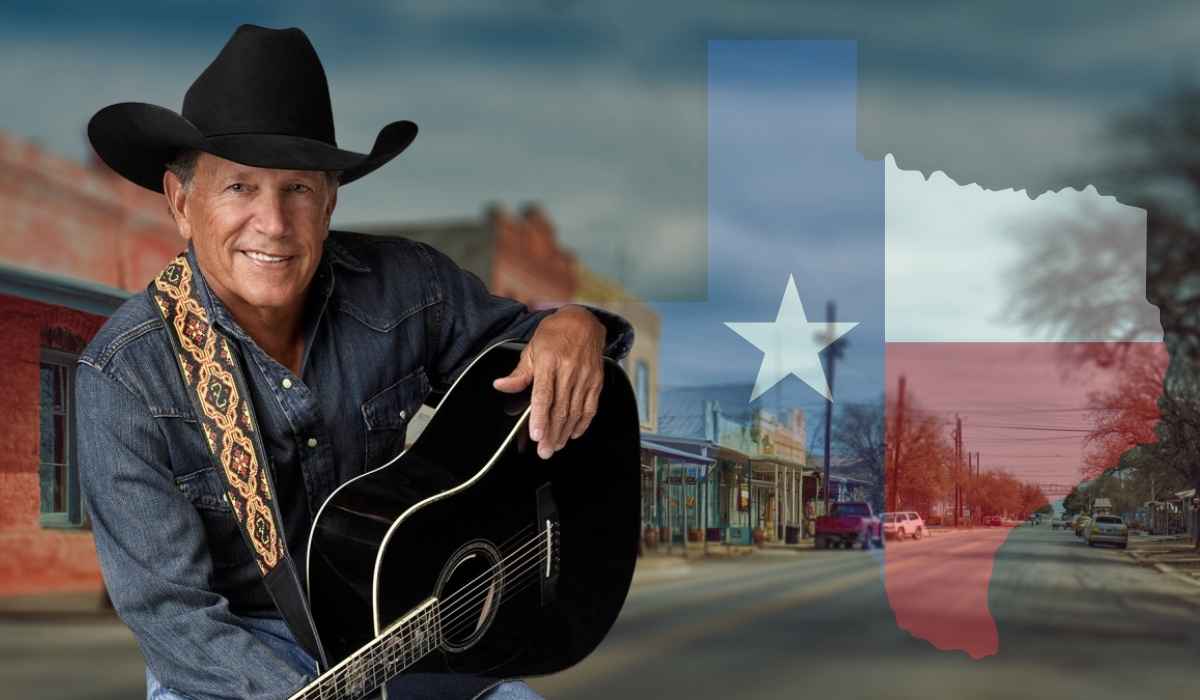
George Strait wasn’t born in a music capital. He was born in Poteet, where strawberry fields and rodeos shaped more lives than recording studios ever could.
Poteet’s annual Strawberry Festival remains a point of pride, and Strait grew up right in the middle of that tight-knit culture.
He didn’t come up through industry pipelines. He served in the U.S. Army, played honky-tonks with his band Ace in the Hole, and gained fans one dance hall at a time. That patience and work ethic came straight out of rural South Texas.
- Discipline from ranch work and military life
- Traditional values reflected in his music
- Reluctance to chase trends or fame
Strait’s simple presentation and clean vocals never relied on spectacle. He didn’t need backup dancers or dramatic pyrotechnics.
He had stories, steel guitars, and a voice that felt honest. That approach made him the “King of Country,” with more No. 1 hits than any other artist.
6. Sadie Sink – Brenham (Population ~17,000)
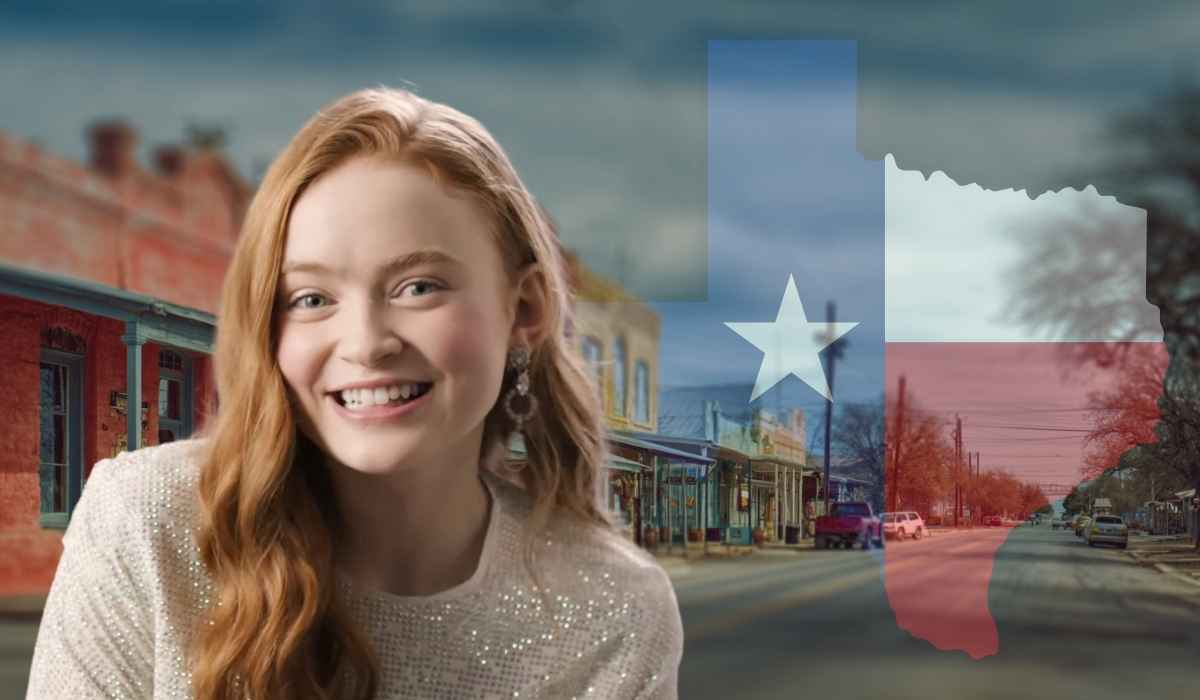
Sadie Sink’s breakout role in Stranger Things might have caught the world off guard, but those in Brenham weren’t surprised.
At age 7, she was already showing signs of serious talent in community theater productions.
Brenham gave her opportunities to act, but also gave her space to grow without the pressures of stardom.
While known for Blue Bell ice cream, the town also has a vibrant arts community that helped young talents like Sink find direction early.
- Local stage productions with small audiences
- Community support that encouraged ambition
- Balance between creativity and normal childhood
Before Broadway and Netflix, she was just another kid learning lines and earning applause at local events. Her confidence on screen doesn’t come from arrogance. It comes from practice, feedback, and encouragement, the kind you find in places where people still show up for school plays.
Why Small Towns Still Matter
In communities like Abbott, Poteet, and Lindale, there’s no anonymity. People know your family, your habits, your strengths, and your failures.
That level of closeness holds young individuals to a higher standard. Expectations aren’t vague. You’re taught to show up, pitch in, and respect others, no excuses.
There’s something deeply instructive about growing up in a place where Friday night football is the biggest event of the week, and neighbors bring casseroles when someone’s sick. It fosters accountability and emotional intelligence. You learn to listen more, brag less, and do what needs to be done without waiting for applause.
Willie Nelson’s time picking cotton wasn’t just a line in his biography. It taught him what hard labor feels like, what perseverance means, and how to spot authenticity.
Those experiences didn’t vanish when he stood on stage. They informed every chord he played and every cause he backed.
- Teach the value of work over shortcuts
- Offer emotional grounding far from industry pressure
- Encourage creative expression without constant judgment
- Reinforce loyalty, humility, and resilience
Miranda Lambert learned stage presence in family bars before ever stepping into a studio. George Strait shaped his clean, no-frills sound in rural towns that didn’t care for theatrics. Dan Rather built his truth-first style in places where word-of-mouth mattered more than ratings.
Small towns don’t guarantee success. They guarantee reality. They expose young minds to both hardship and support, to the kind of duality that creates grounded, driven, emotionally aware individuals. For artists, that balance becomes fuel.
The Bottom Line
Big talent doesn’t require a big stage to begin. That is why a small town in Texas was an advantage for many. Some of the world’s most iconic figures started their lives in quiet corners of Texas.
The spotlight may find them later, but their essence is shaped in places many never visit.

